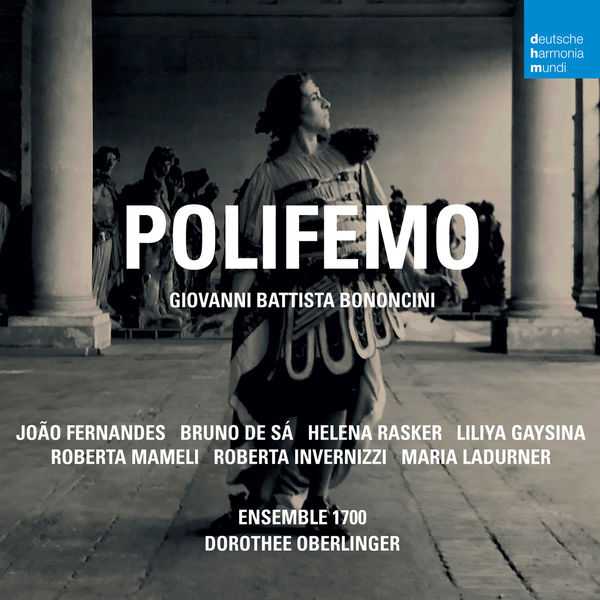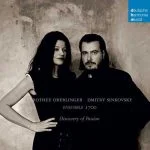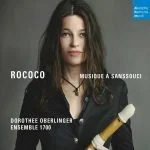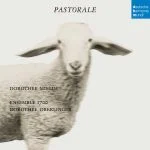

Composer: Giovanni Battista Bononcini
Performer: Ensemble 1700, Helena Rasker, Bruno De Sá, João Fernandes, Maria Ladurner, Roberta Mameli, Liliya Gaysina, Roberta Invernizzi
Conductor: Dorothee Oberlinger
Number of Discs: 2
Format: FLAC (tracks)
Label: Deutsche Harmonia Mundi
Catalogue: 19439743802
Release: 2020
Size: 966 MB
Recovery: +3%
Scan: yes
Polifemo
CD 01
01. Overture
02. Invan tenti fugit (Recitativo)
03. Nacque da’ lumi tuoi (Aria)
04. Non mi parla d’amore! (Recitativo)
05. S’amor si fà penar (Aria)
06. Che barbaro destin (Recitativo)
07. Chi dallo speco il nome mio invoca? (Recitativo)
08. Voi del ciel numi clementi (Aria)
09. Non soffrirà mai Circe (Recitativo)
10. Pensiero de vendetta (Aria)
11. Galatea, mio bene! (Recitativo)
12. E cara la pena (Duetto)
13. Intensi oppur sognai (Recitativo)
14. Vanarella, pazzarella (Aria)
15. Respira, alma, respira (Recitativo)
16. Dove sei, dove t’ascondi (Aria)
17. Ah, Galatea, t’ho visto! (Recitativo)
18. Quanto penosallo, amore (Aria)
19. Or che mi sei fedele (Recitativo)
20. Dieci vacche, otto viteli (Aria)
21. Polifemo dunque ottenne in sorte (Recitativo)
22. Se brami salvezza (Recitativo)
23. Partir vorrei (Aria)
24. Felicità maggiore (Recitativo)
25. Io per me voglio goder (Aria)
CD 02
01. Opportuna ritrovo a miei disegni (Recitativo)
02. M’è si caro il vederti immortale (Aria)
03. A tante grazie il cor muto sirende (Recitativo)
04. Che più bramar potrò (Aria)
05. Uha, che stanco son di più cercar costei (Recitativo)
06. Queste goccie che vado (Aria)
07. Ahi-mè! Soccorso! Aita! (Recitativo)
08. Ferma, Glauco, che fai? (Recitativo)
09. Soccorete e non tardate (Aria)
10. Si porgan à Ciprigna (Recitativo)
11. Bella dea, che sorgi dall’ond (Aria)
12. Che veggio mai, o Dio (Recitativo)
13. Stringelo pur alseno (Aria)
14. A ricontrar me’n vado il caro sposo (Recitativo)
15. Cor contento fra catene (Aria)
16. Lascia mia cara vita (Recitativo)
17. Farfaletta che segue l’Amor (Rondeau Coro)
The main rival to Händel in London at the beginning of the 18th century, Giovanni Battista Bononcini never saw the same level of posterity as his German colleague. However, his Griselda, Crispo and Astarto saw great success. While time was kind to Händel, it cast Bononcini’s operas into shadow.
His Poliferno created in 1702 at the Prussian court was not an opera in the true meaning of the term, but a vast serenata lasting an hour and a half. His librettist had the idea of mixing two tales: the story of Acis and Galatea and the jealous cyclops Polyphemus, and the misadventures of Scylla and Glaucus loved also by Circe, thus two love triangles reunited in one singular work. In this musical score, Bononcini need not envy his German rival thanks to his constant inventiveness and great sense of melody.
Initially brought back to life in Germany in 1944, this Polifemo was recorded in 1987 by René Jacobs and has since been represented on stage. This new realisation was recorded during the concerts presented at the orangery of the Sans-Souci château in Potsdam in June 2018 under the direction of Dorothee Oberlinger (also the director of the Potsdam Festival) at the head of the Ensemble 1700 which she founded in 2002. One cannot fault the quality of its execution, thanks to an irreproachable vocal distribution supported by an extremely precise instrumental and stylistic approach.
Bononcini knew his music theatre craft…Oberlinger is well served by a committed ensemble of singers, notably the Dutch contralto Helena Rasker who as Glauco has the kind of chest register that makes the hairs on the back of your neck stand to attention.
Dorothee Oberlinger and Ensemble 1700 deftly bring dramatic characters and situations to life in this live recording of a staged production…There are a few momentary blemishes in balance and vocal tuning but there is plenty to admire about Bononcini’s imagination and skill.
[Oberlinger] obtains neat, lively playing from her Ensemble 1700, perhaps in the final analysis lacking only a measure of Italianate flair…her cast do the opera proud. The casting of Roberta Invernizzi and Roberta Mameli, long experienced in this repertoire, as the joint heroines Galatea and Silla pays strong dividends, both acquitting themselves admirably…Throughout, the sharply pointed and idiomatic delivery of recitative is an additional pleasure.



